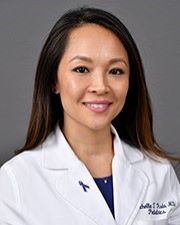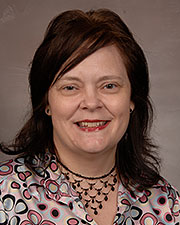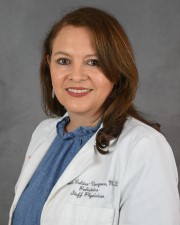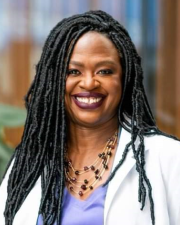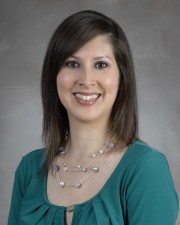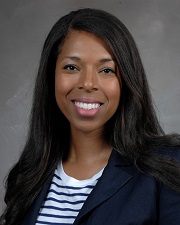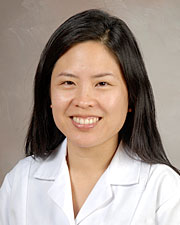Above and Beyond
Outstanding Example
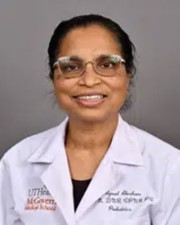
Cilymol Abraham, APRN, DNP, CPNP
Community and General Pediatrics Nurse Practitioner Cilymol Abraham, APRN, DNP, CPNP, recently served as preceptor for Benjamin Flint, a family nurse practitioner student who completed a 90-hour clinical rotation at UT Physicians Multispecialty – Greens. This student shared a glowing review of Cilymol Abraham’s leadership and example. “Routine wellness visits were anything but routine for Ms. Abraham. She took advantage of these visits to find out what health issues needed to be addressed to improve the health of both the patient and the patient’s family. Ms. Abraham has a gift of showing the kind of compassion and skill that is needed to affect positive health changes in a population that is challenging. I am grateful I was able to witness this,” Flint said.
Faculty in PLUS Program
Many thanks to these faculty who participated in the McGovern Medical School Office of Professionalism PLUS Program with first-year medical students and community organizations. The letter below from PLUS Program Director Asia Bright, PhD, underscores their investment of time and energy and highlights some of the student experiences.
- Michelle Ruda, MD
- Karen Posey, PhD
- Maria Caldas-Vasquez, MD
- Terri Major-Kincade, MD, MPH
- Veronica Gonzalez, MD, FAAP
- Vershanna Morris, MD
- Jean Hsu, DO, FAAP
“Dear Dr. Mary Aitken (and the Department of Pediatrics),
I am pleased to recognize Drs. Michelle Ruda, Karen Posey, Maria Caldas-Vasquez, Terri Major-Kincade, Veronica Gonzalez, Vershanna Morris, and Jean Hsu for their exceptional contributions to McGovern Medical School’s Professionalism Learning Underscored by Service (PLUS) program. This service-learning initiative places first-year medical students alongside community organizations, giving them first-hand exposure to the social drivers of health and the complex realities that shape patient care.
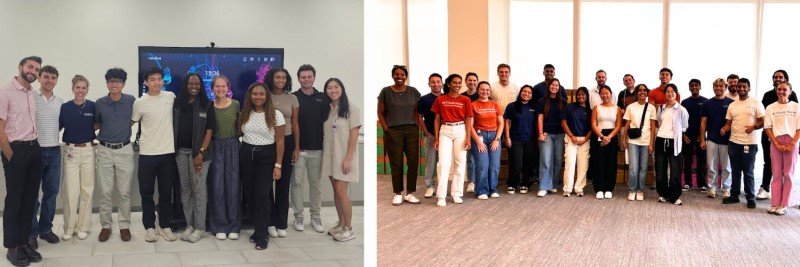
L-R: Terri Major Kincade, MD, MPH, (center) with her PLUS Program group at the Dyslexia School of Houston; Vershanna Morris, MD (far left) with her group at the Barbara Bush Houston Literacy Foundation.
Through their work in PLUS, your faculty demonstrated how social responsibility is inseparable from the physician’s professional identity. Their leadership exemplified the integration of community engagement, ethical practice, and clinical excellence, which showed our students that service to society is not peripheral to medicine, but central to its purpose.
This caliber of role modeling leaves a lasting imprint on our learners, shaping the values and commitments that will define their careers. Their efforts advance the mission of our school and reflect the highest ideals of the medical profession.”
— Asia Bright, PhD
PLUS Program Director
Assistant Professor of Psychiatry and Behavioral Sciences
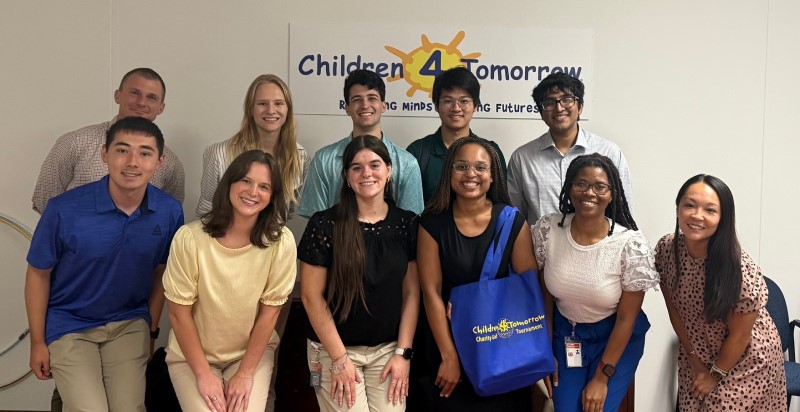
Michelle Ruda, MD, (far right) poses with her PLUS Program group at Children 4 Tomorrow, a nonprofit that that advocates for children and families in the process of divorce or custody issues.
Student reflections after participating in the PLUS Program:
During our PLUS session at AVDA, they presented ways to identify domestic abuse and how to go about providing resources for the people who may need it, whether that be victim or perpetrator. The coordinator particularly emphasized that, in our roles as clinicians, we have a very special role in identifying and helping victims of domestic abuse, as many patients confide in us about private and sensitive matters due to their trust in us. One thing that challenged my perspective was the emphasis on being non-assertive – while we could and should provide resources to people we suspect may be experiencing domestic abuse, it is not appropriate to confront them about it directly, as this may cause victims to close themselves off to further aid and become defensive. I feel as if this will sometimes come into direct conflict with physicians’ missions to “do no harm”, as not taking direct actions in certain situations can feel as if we are not doing all we can to help our patients. However, I now understand that mindset, as it was explained that victims can become even more endangered if their abusers found out about a physician’s aid. I feel as if it will be a difficult line to walk in practice, but it is an important one to consider. AVDA has helped me become more aware of how to approach these conversations of suspected domestic abuse in the clinic, which I am very grateful for.
My experience at the Nehemiah Center ended up being far more powerful than I expected. Throughout the day, my society toured the entire campus, watched videos, learned about the rich history and mission, and even had the opportunity to interact with some of the middle schoolers and preschoolers. What surprised me most wasn’t the information we learned about the organization or even spending time with the kids, but was listening to the faculty and staff. When speaking with development director, Ms. Luna, I was blown away by the way she spoke about the children. She could recall every name of every student, where they lived, how long they had been at Nehemiah, and even where they were attending college or graduate school. Her strong passion for supporting these children at risk, and their goals, their interests, and even their parents and siblings, was incredibly moving (she cried just telling us about them!!).
We also had the privilege of spending extra time with Ms. Dabney who had just begun working as a volunteer coordinator last week. Hearing about her journey as an educator was truly inspiring. It’s one thing to sit in a classroom and learn about social determinants of health as I’ve been doing for years, but it’s another entirely to step foot into this world and witness it firsthand. This experience reminded me that in clinical settings, being able to fully understand a patient’s person story, beyond their medical chart, can profoundly shape empathy, communication, and the decisions that healthcare professionals will make in their care. I’m genuinely excited to continue working with the Nehemiah center throughout my time in Houston and will definitely be reaching out to Ms. Dabney about volunteering!
During the service day, I remember looking at one of the little “prescription to read” slips we were putting in the tote bags and thinking about how something so simple as a daily habit of reading aloud could completely change the trajectory of a child’s life. It made me think about health in a much broader sense, not just in terms of physical wellbeing, but also how education and literacy are powerful determinants of a person’s opportunities and overall quality of life.
It also reminded me that not every intervention we make as future physicians will be medical in the traditional sense. Sometimes it will be about connecting families with resources, giving encouragement, or planting the seed for a healthier, more supported future. In a clinical setting, this shifts how I think about my role. Not just as someone diagnosing or prescribing, but as someone who listens, understands the social and developmental needs of my patients, and recognizes that a “prescription” can look like a book, a community program, or a small piece of advice that empowers a family.
I think this experience will make me more intentional about asking patients about their home environment, routines, and what resources they have access to (instead of just assuming those things are in place). It will help make me more empathetic to how hard it can be to build habits when life is stressful, and also more hopeful, because I’ve seen how small, accessible tools can make a huge impact when they’re consistent and intentional.
Spending the morning at the Dyslexia School of Houston was informative and enlightening beyond what I imagined it would be. We participated in a dyslexia simulation that allowed us to personally experience a piece of the exhaustion, embarrassment, and frustration that children and adults with dyslexia and other learning differences face. I remarked during one of the activities that I could feel more compassion entering my body. I worked as a therapy technician for a few months before starting medical school, and as I worked with all my might to complete a star maze, I noticed how similar my work looked to the many mazes and letters I saw children struggle to produce during their occupational therapy. It had not occurred to me that dyslexia could be a part of their struggle or how pervasive it can be. I worked closely with a speech therapist with quadriplegia, supporting her with evaluations and play therapy with small children, and learned more than I had ever known about her profession, including language-processing disorders, autism, and therapy strategies. Many of the children I met in that capacity came to my mind. I remembered wondering why they couldn’t remember and learn the letters and the sounds they make. I’m nearly certain that some of them have dyslexia, considering it affects 20% of the population, but also fairly sure that they don’t have access to the resources, instructors, and tools that would facilitate their learning and literacy.
Having a better understanding of dyslexia will help me to have greater compassion for humans of all ages who struggle with literacy. I will be more able to make recommendations, and, especially if I work in primary care, I will strive to be aware of the community and the resources available to help children and individuals with learning differences.
